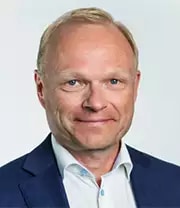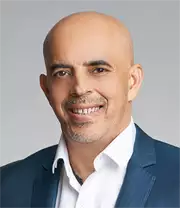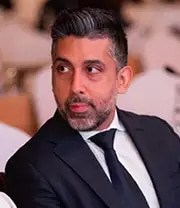About this report

At Nokia, we create technology to connect the world. We offer a comprehensive portfolio of network equipment, software, services and licensing opportunities and with our commitment to innovation, driven by the award-winning Nokia Bell Labs, we are a leader in the development and deployment of 5G networks.
Working with both communications service providers and enterprise customers, we are committed to playing a central role in this expansion. By developing powerful end-to-end 5G networks, we will transform how people live, work and communicate.
The report combines research and analysis from Nokia Bell Labs; enterprise survey findings from Sapio; and the input, analysis and opinion of 5G experts around the globe – including Nokia executives, customers and partners, and some of the world’s leading consultants and opinion formers.

Bell Labs Consulting uses Input-Output tables to capture the multiplicative impact of increased ICT spend on GDP to project changes in the overall economy as a result of investment increases in one or more sectors.
Bell Labs Consulting calculates GDP multipliers that translate ICT investment in individual sectors to overall GDP increases for individual regions; regional numbers were then summarized to generate the global GDP.
Interested in the regional findings?
Research methodology
The enterprise survey was conducted by Sapio, on behalf of Nokia. We surveyed 1,628 technology purchasing decision makers in eight markets and across six industry sectors in July and August 2020, using an email invitation and an online survey. This fieldwork was carried out during the COVID-19 pandemic.
The markets were as follows: Australia (203), Finland (200), Germany (203), Japan (203), Saudi Arabia (202), South Korea (200), UK (207), US (210).
The sectors were: energy and utilities (208 responses), mining (119), manufacturing (455), public sector (271), healthcare (445), transportation (130). Respondents from companies of less than 250 employees were only permitted for energy and utilities and mining companies.

Report contributors
Pekka Lundmark

Pekka Lundmark, President and Chief Executive Officer (CEO), Nokia
With almost 20 years’ experience as a CEO between Hackman, Konecranes, Fortum and mostly recently Nokia, Pekka has accrued deep expertise in the telecommunications, technology, energy, manufacturing, machinery, retail and finance sectors, all of which are central to the transition into the Fourth Industrial Revolution.
He originally begun his career with Nokia between 1990 and 2000, where he helped oversee Nokia’s emergence as the world’s biggest mobile handset manufacturer and a significant player in mobile infrastructure. Pekka became known as a dynamic and visionary leader who knew how to adapt businesses to prepare for, and capitalize on, coming trends.
Pekka’s broad experience, which includes working in Silicon Valley and Asia, has given him insight into new technologies and techniques that will be at the heart of the Fourth Industrial Revolution. These include 5G, artificial intelligence (AI), private networks, the Industrial Internet of Things (IIoT), predictive maintenance, cloud computing, adapting business models, retraining staff, supply chain optimization and widespread digitalization.





